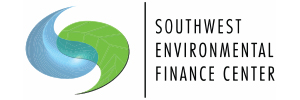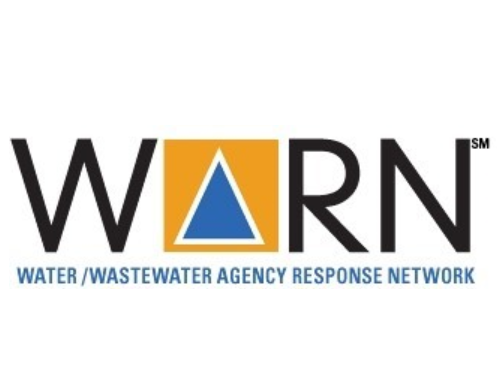Written by Dawn Nall
According to EPA, Water and Wastewater Agency Response Networks (WARNs) are comprised of “utilities helping utilities” within a state respond to and recover from emergencies by sharing resources with one another. WARNs are governed by a common mutual aid agreement. The WARN agreement allows utilities to share resources in an expedited way, compared to other mechanisms that may require a formal disaster declaration. Benefits include increased emergency preparedness and coordination, and enhanced access to specialized resources. WARNs are built on a strong base of utility members. Utility responders, once notified, are typically on the ground within 24 hours.
Sometimes water and wastewater utilities face emergencies that require outside assistance. Emergencies such as main breaks, low pressure in the system, water shortages, contamination, earthquakes, fires, tornadoes, hurricanes, and flooding require quick repairs and recovery. System outages are detrimental to the community and reducing this outage time is of great importance. One way you can prepare is to join your state’s WARN.
All types of water utilities – drinking water, wastewater, public, private, large and small – can benefit from joining their state WARN, which exist in 49 of the 50 states, as well as the National Capital Region.
There are many benefits to joining WARN, including:
- Single agreement links utilities statewide
- Spells out how liability, workers’ compensation, insurance and reimbursement will work
- Increased response time by aid providers
- Access to resources (financial and equipment)
- Decreased recovery time
- Voluntary No cost to join
State WARN listings can be found at:
More resources are available at:
https://www.awwa.org/Resources-Tools/Resources/Risk-Resilience/WARN-Resources


Recent Comments